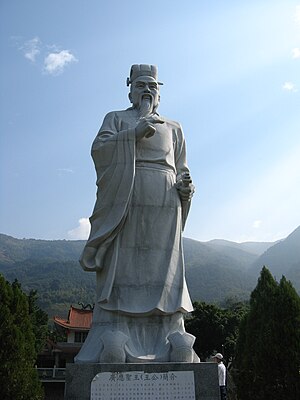This article needs additional citations for verification. (November 2024) |
Year 372 (CCCLXXII) was a leap year starting on Sunday (link will display the full calendar) of the Julian calendar. At the time, it was known as the Year of the Consulship of Modestus and Arintheus (or, less frequently, year 1125 Ab urbe condita). The denomination 372 for this year has been used since the early medieval period, when the Anno Domini calendar era became the prevalent method in Europe for naming years.
| Millennium: | 1st millennium |
|---|---|
| Centuries: | |
| Decades: | |
| Years: |
| Gregorian calendar | 372 CCCLXXII |
| Ab urbe condita | 1125 |
| Assyrian calendar | 5122 |
| Balinese saka calendar | 293–294 |
| Bengali calendar | −221 |
| Berber calendar | 1322 |
| Buddhist calendar | 916 |
| Burmese calendar | −266 |
| Byzantine calendar | 5880–5881 |
| Chinese calendar | 辛未年 (Metal Goat) 3069 or 2862 — to — 壬申年 (Water Monkey) 3070 or 2863 |
| Coptic calendar | 88–89 |
| Discordian calendar | 1538 |
| Ethiopian calendar | 364–365 |
| Hebrew calendar | 4132–4133 |
| Hindu calendars | |
| - Vikram Samvat | 428–429 |
| - Shaka Samvat | 293–294 |
| - Kali Yuga | 3472–3473 |
| Holocene calendar | 10372 |
| Iranian calendar | 250 BP – 249 BP |
| Islamic calendar | 258 BH – 257 BH |
| Javanese calendar | 254–255 |
| Julian calendar | 372 CCCLXXII |
| Korean calendar | 2705 |
| Minguo calendar | 1540 before ROC 民前1540年 |
| Nanakshahi calendar | −1096 |
| Seleucid era | 683/684 AG |
| Thai solar calendar | 914–915 |
| Tibetan calendar | 阴金羊年 (female Iron-Goat) 498 or 117 or −655 — to — 阳水猴年 (male Water-Monkey) 499 or 118 or −654 |

Events
editBy place
editRoman Empire
edit- Emperor Valentinian I is engaged in operations against the Alamanni, Quadi and Sarmatians, while his subordinates are dealing with Firmus, Roman usurper, in Africa and the Picts in Britain.
Europe
edit- The Huns attack the Tervingi on the Dniester, overwhelming them with light cavalry (horse archers), and devastating the settlements of the Goths. King Athanaric is defeated, and seeks refuge in the Carpathian Mountains (Romania).
- Athanaric starts building new defensive works, to protect his people against the Alans and the Huns.
China
edit- Sixteen Kingdoms: Jin Feidi is dethroned as emperor of the Eastern Jin Dynasty. He is replaced by his granduncle Sima Yu, who is installed as Jin Jianwendi.
- September 12 – Jin Xiaowudi, age 10, succeeds his father Jin Jianwendi. Empress Chu Suanzi serves as regent, but decisions are made by the high officials Xie An and Wang Tanzhi.
- The first diplomatic ties are established between the Korean kingdom of Baekje and the Chinese court of the Jin Dynasty.
By topic
editArt and Science
edit- The national academy of Chinese learning, called Taehak, is established in the kingdom of Goguryeo (Korea).
- Basil the Great establishes the Basileias, possibly the first hospital, near Caesarea Mazaca on land granted by emperor Valens.[1]
Religion
edit- Gregory of Nyssa becomes bishop of Nyssa.[2]
- Buddhism is adopted as the official religion of Gorguryeo.
- Saint Augustine adopts Manichaeism.
- Valentinian I bans Manichaean meetings.
Births
edit- Pei Songzhi, Chinese historian and politician (d. 451)
Deaths
edit- Jianwen of Jin, Chinese emperor of the Jin Dynasty (b. 320)
- Maximus of Ephesus, Greek Neoplatonist philosopher
- Sabbas the Goth, Christian reader and saint (b. 334)
References
edit- ^ Caner, Daniel (2018). "Not a Hospital but a Leprosarium: Basil's Basilias and an Early Byzantine Concept of the Deserving Poor". Dumbarton Oaks Papers. 72. Washington, DC: Dumbarton Oaks, Trustees for Harvard University: 34–35. Retrieved November 27, 2024.
- ^ Maspero, Giulio; Mateo-Seco, Lucas Francisco, eds. (December 14, 2009). The Brill Dictionary of Gregory of Nyssa. Netherlands: Brill Publishers. p. 103. ISBN 9789004190696.